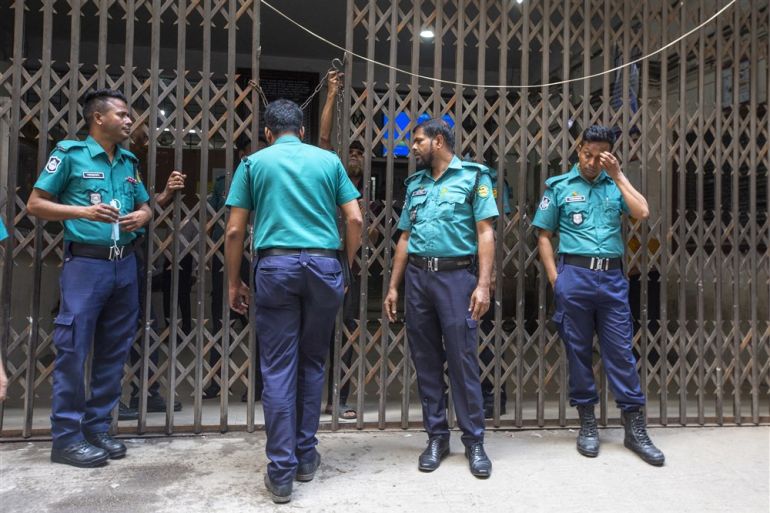Bangladesh arrests four for caning, stoning woman over affair
Police say the woman was ‘caned 82 strokes’ and ‘stoned 80 times’ with small brick pieces after an imam issued a ‘fatwa’, a religious decree.

A Muslim scholar and three village elders have been arrested in Bangladesh on charges of ordering a woman to be caned and stoned after she was accused of an extramarital affair, according to police.
Police on Monday said the woman was “caned 82 strokes” and “stoned 80 times” with small brick pieces after an imam issued a fatwa, a religious decree, punishing her last week.
Keep reading
list of 4 itemsBangladesh in hot seat over Adani’s power deal
Bangladesh journalist arrested after report on high food prices
Bangladesh investigative journalist’s brother ‘beaten with rods’
Police inspector Zakir Hossain said on Tuesday officers arrested four people, including the imam of the mosque in Habiganj in the northeast, after the woman filed a criminal case on April 7 against 17 people.
He told Al Jazeera the cases were filed under Bangladesh’s Prevention of Oppression Against Women and Children Act.
“After the filing of the case, we arrested the local cleric who gave the fatwa. We have also arrested three other village elders who took part in the informal council, known as ‘shalish’,” Hossain said.
“The village council ordered the caning and stoning in the name of Sharia law after she was accused of an extramarital affair,” Hossain said.
The village elders “said it will absolve her from her sin and will redeem her honour”, he added.
The police officer said the 30-year-old woman was allegedly having an affair with a local autorickshaw driver. Her husband, he said, works in the Gulf country of Oman and returned home after the incident was reported.
“He also seeks justice for what happened to his wife,” Hossain told AFP news agency.
The woman said she was “a victim of terrible injustice”.
“I can’t express in language what they did to me,” she said.
The mainly Muslim South Asian nation of 170 million people has a secular legal system and applying Islamic law in criminal cases is illegal.
The fatwa triggered an outcry, with feminist groups and rights activists staging protests to demand the perpetrators’ prosecution.
“They acted like medieval people,” Fauzia Moslem, the president of the country’s largest women’s group, told AFP.
Decades ago, village councils in rural Bangladesh commonly used Islamic law to punish Muslim women accused of adultery.
In a 2011 ruling, Bangladesh’s Supreme Court allowed fatwas to be issued but prohibited their enforcement.
The decision effectively allowed Islamic law to be followed voluntarily but prohibited any kind of punishment by Muslim scholars or village councils.
Faisal Mahmud contributed to this report from Dhaka, Bangladesh.